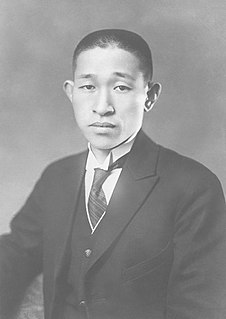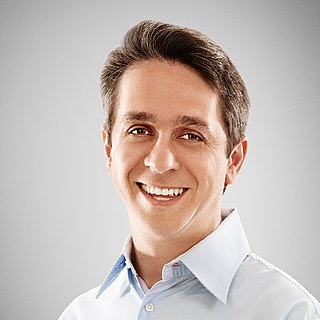A Quote by Walter E. Williams
Profit is vital to human well-being. Profit is the payment to entrepreneurs just as wages are payments to labor, interest to capital and rent to land. In order to earn profits in free markets, entrepreneurs must identify and satisfy human wants and do so in a way that economizes on society's scarce resources.
Related Quotes
Many entrepreneurs embrace profit-making and charitable purposes. Companies such as shoes seller Toms and eyeglass firm Warby Parker sell products at a profit with a pledge to devote part of their earnings to the needy. The number of for-profit businesses with a built-in charitable dimension has proliferated.
Rich dad went on to explain that the world was filled with different types of entrepreneurs. There are entrepreneurs who are big and small, rich and poor, honest and crooked, for-profit and not-for-profit, saint and sinner, small town and international, and successes and failures. He said, "The word entrepreneur is a big word and it means different things to different people."
I dismiss personal profit and focus exclusively on people and planet. That's what I call social business: a nondividend company dedicated to solving human problems. You can go all the way, forgetting about personal profit, being single-minded about solving problems. The company makes profit, but profit stays with the company.
Capital does not 'beget profit' as Marx thought. The capital goods as such are dead things that in themselves do not accomplish anything. If they are utilized according to a good idea, profit results. If they are utilized according to a mistaken idea, no profit or losses result. It is the entrepreneurial decision that creates either profit or loss.
Capitalism as a social order and as a creed is the expression of the belief in economic progress as leading toward the freedom and equality of the individual in a free and open society. Marxism expects this society to result from the abolition of private profit. Capitalism expects the free and equal society to result from the enthronement of private profit as supreme ruler of social behavior.
All people, entrepreneurs as well as non-entrepreneurs, look askance upon any profits earned by other people. Envy is a common weakness of men. People are loath to acknowledge the fact that they themselves could have earned profits if they had displayed the same foresight and judgment the successful businessman did.
We need to reverse three centuries of walling the for-profit and non-profit sectors off from one another. When you think for-profit and non-profit, you most often think of entities with either zero social return or zero return on capital and zero social return. Clearly, there's some opportunity in the spectrum between those extremes. What's missing is the for-profit finance industry coming in to that area. Look at the enormous diversity of the for-profit financial industry as opposed to monolithic nature of the non-profit world; it's quite astonishing.
The real scientific study of the distribution of wealth has, we must confess, scarcely begun. The conventional academic study of the so-called theory of distribution into rent, interest, wages, and profits is only remotely related to the subject. This subject, the causes and cures for the actual distribution of capital and income among real persons, is one of the many now in need of our best efforts as scientific students of society.

































